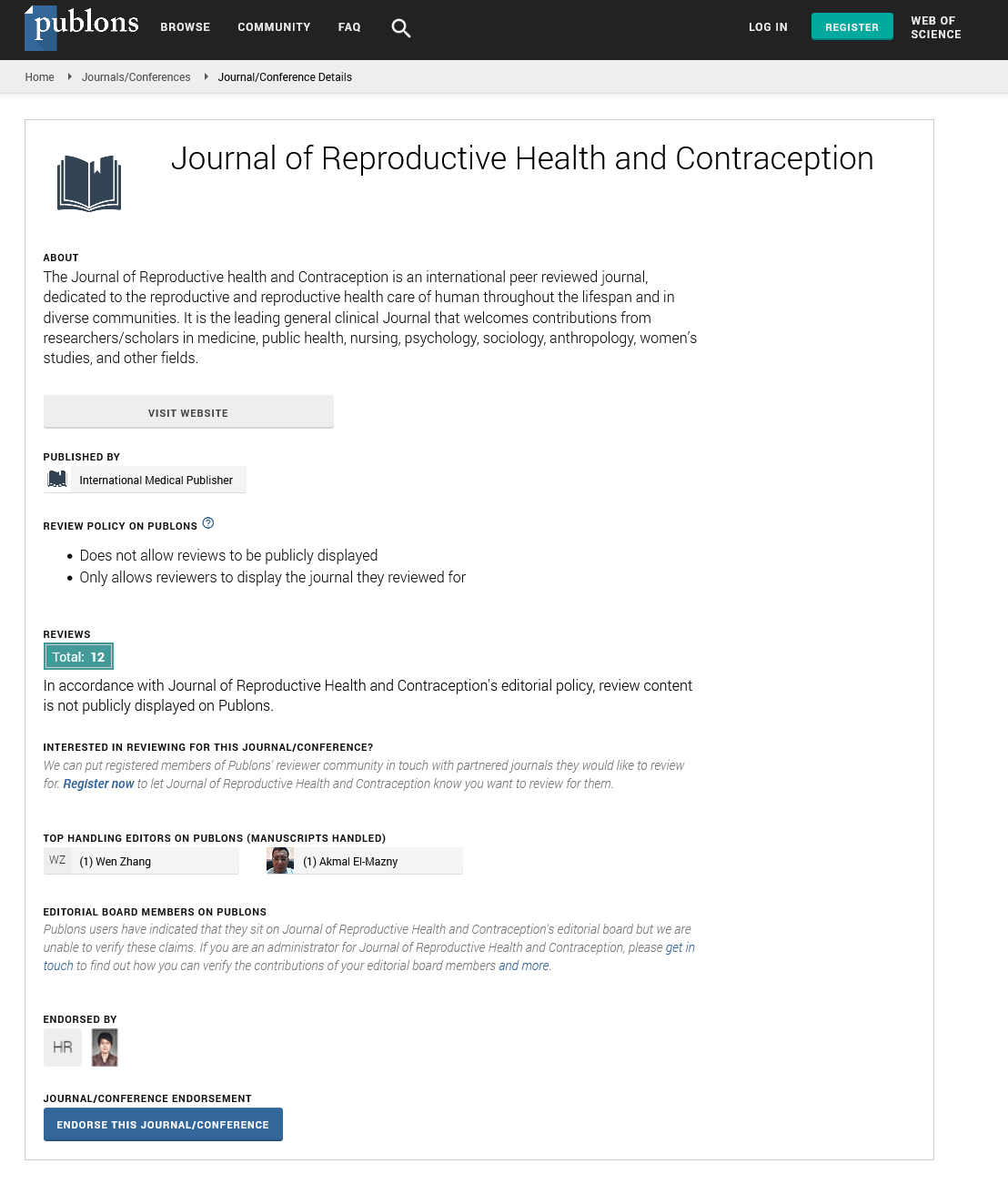ISSN : 2471-9749
Journal of Reproductive Health and Contraception
Placenta disposal rituals among Somali refugees in Dadaab camp
International Congress on Midwifery and Maternal health - May Webinar
May 19-20, 2021 | Webinar
Muthoni Mainah
Kenyatta University, Kenya
ScientificTracks Abstracts: J Contracept Stud
Abstract
Rituals surrounding birth and placenta are common in various African societies. The rituals and practices are transmitted from one generation to next in form of fertility myths, folk tales, taboos and religion. The burial of placenta is a common post-partum ritual in many cultures. However, the ritual processes practices and its symbolic meaning vary from one culture to the other. For instance, the Holy Quran, 20:55, indicates that placenta should be buried because it is from the earth people were created, and into it shall they return. Other communities believe placenta should be buried lest witchdoctors steal and use it to curse the family. Therefore, this study embarked on exploring the rituals surrounding disposal of placenta among Somali refugees living in Dadaab camp. The study wished to establish religio-cultural drivers behind burying of placenta; how and where the placenta is buried and significance of burying the placenta for the mother, baby and community at large. It was a qualitative study carried out Ifo refugee camp- Dadaab. The study interviewed men, TBAs, pregnant mothers and safe mothers. Two separate focus group discussions (FGDs) were done for men and women, where one FGD was conducted for only women and another for men only. The findings indicated that for Somali refugees, burying of placenta is a significant spiritual-cultural practice that has been carried out by ancestors. TBAs are the ones that bury the placenta two feet deep to avoid foil stench and animals preying on it. The study established that the placenta has a religious significance and is one of the major reasons why the community prefers TBAs services to hospitals. Such findings could be a game changer for hospital staff to come up with strategies to make sure they elicit mothers input regarding placenta disposal and make provision to meet their wishes.
Biography
Muthoni Mainah is a lecturer in the department of Sociology, Gender and Development Studies at Kenyatta University-Kenya. She attained PhD in Gender and Development Studies, MA in counselling psychology and Bachelor of Education at Kenyatta University and MA in Gender and Development Studies at the University of Nairobi (Kenya). She has published in the areas of SGBV, gender water and entrepreneurship, Gender and criminology, conflict resolution and anger management. As a researcher, she has been Principal Investigator, co-PI and researcher in various research projects. She has presented several papers in seminars and conferences. She is widely consulted by national and international organizations, including the UNICEF, Kenya Port Authority, UNWOMEN and IITA. She participated in developing a gender responsive Unified Framework for Maritime Disaster and Risk Management; Gender Responsive Budget briefs for Embu, Meru and Kajiado Counties; Gender policy and strategic plan for KPA.
Google Scholar citation report
Citations : 201
Journal of Reproductive Health and Contraception received 201 citations as per Google Scholar report
Journal of Reproductive Health and Contraception peer review process verified at publons
Abstracted/Indexed in
- Google Scholar
- China National Knowledge Infrastructure (CNKI)
- WorldCat
- Publons
Open Access Journals
- Aquaculture & Veterinary Science
- Chemistry & Chemical Sciences
- Clinical Sciences
- Engineering
- General Science
- Genetics & Molecular Biology
- Health Care & Nursing
- Immunology & Microbiology
- Materials Science
- Mathematics & Physics
- Medical Sciences
- Neurology & Psychiatry
- Oncology & Cancer Science
- Pharmaceutical Sciences
